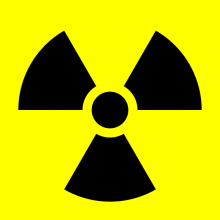Iran is researching technology that could enable them to partly reverse a process used to convert medium-grade nuclear fuel into peaceful medical use, according to a new report from the United Nations’ nuclear watchdog. In light of the above, a think tank is recommending questions be answered about this move to determine if it’s undermining the agreement in place to prevent Iran from expanding it’s nuclear capabilities. That arrangement, the Joint Plan of Action (JPA), was put in place while a long-term nuclear deal is being negotiated with major world powers.
The Institute for Science and International Security (ISIS) released a report on their website analyzing the latest review on Iran’s nuclear program by the International Atomic Energy Agency (IAEA). The review noted that while Iran had made one step to reduce concerns they are working around the JPA, a new effort could help them recover research-grade nuclear material that was supposed to be cut down as part of the plan.
The questions center around the near-20-percent-enriched uranium stockpile Iran had claimed was for medical research. While this grade of nuclear fuel can be used for such peaceful purposes, it is also considerably down the path of developing weapons-grade nuclear material.
As a result, the six nations negotiating a long-term nuclear agreement with Iran got the Iranians in the interim to reduce their stockpile of such nuclear fuel by feeding into medical research. However, the latest IAEA report, obtained by ISIS, noted that Iran is working on the capability to take the scraps and waste from such a process and convert it back into usable material.
ISIS noted in their report that Iran had agreed not to engage in this “scrap recovery” process, and therefore their research into it raises questions. The think tank said that Iran had notified the IAEA of their intentions and that the IAEA had verified the research and development process had begun, although the actual recovery had not.
While ISIS noted that it is unknown how much of this scrap could be recovered and whether or not all of the recovery is technically prohibited by the plan agreed upon by Iran, the think tank still said that “this issue requires clarification, at least, and better, a commitment by Iran not to commence operation of such a scrap recovery capability.”
The issue is a key one considering the nuclear negotiations with Iran have been extended under the belief that the Iranian program is being kept in a holding-pattern during the discussions. Said the ISIS report, “This new capability poses a challenge to the extension agreements of the Joint Plan of Action.”
While this step raises questions, ISIS did note that Iran attempted to allay concerns in a different area raised by a previous IAEA report. The watchdog found that Iran has disconnected an advanced centrifuge used in production of nuclear fuel.
“This disconnection reflects Iran addressing concerns about its enrichment in the centrifuge in the last reporting period,” said the ISIS report. “The disconnection provides additional confidence that Iran is abiding by its commitments under the Joint Plan of Action.”
But highlighting another negative angle in the IAEA report, ISIS’ analysis also noted that Iran still has not answered questions about past research that could be used for developing nuclear weapons. This led Israeli Prime Minister Benjamin Netanyahu to again question the trustworthiness of Iran during the nuclear talks with the world powers.
“Iran insists on hiding this from the international community at a time when the major powers are continuing to try and allow Iran to produce the core of such weapons, enriched uranium,” said Netanyahu in comments released by his office. “These do not go together. The major powers do not need to court Iran to agree to accept the possibility of producing nuclear weapons even as the latter refuses to divulge the details of the preparations for its nuclear weapons.”
(By Joshua Spurlock, www.themideastupdate.com, February 22, 2015)

